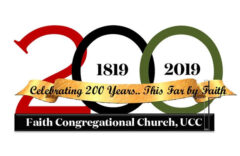Don’t Forget Flint!
Lead crisis: Flint braces as Michigan shuts down free bottled water sites “My water stinks. It still burns to take a shower. There’s no way they can say it’s safe.” by Erik Ortiz / Apr.09.2018 / 11:44 AM ET / Updated Apr.09.2018 / 2:39 PM ET Shawn Jones, 42, right, and Tony Price, 54, distribute bottled water at a point […]
![]()
